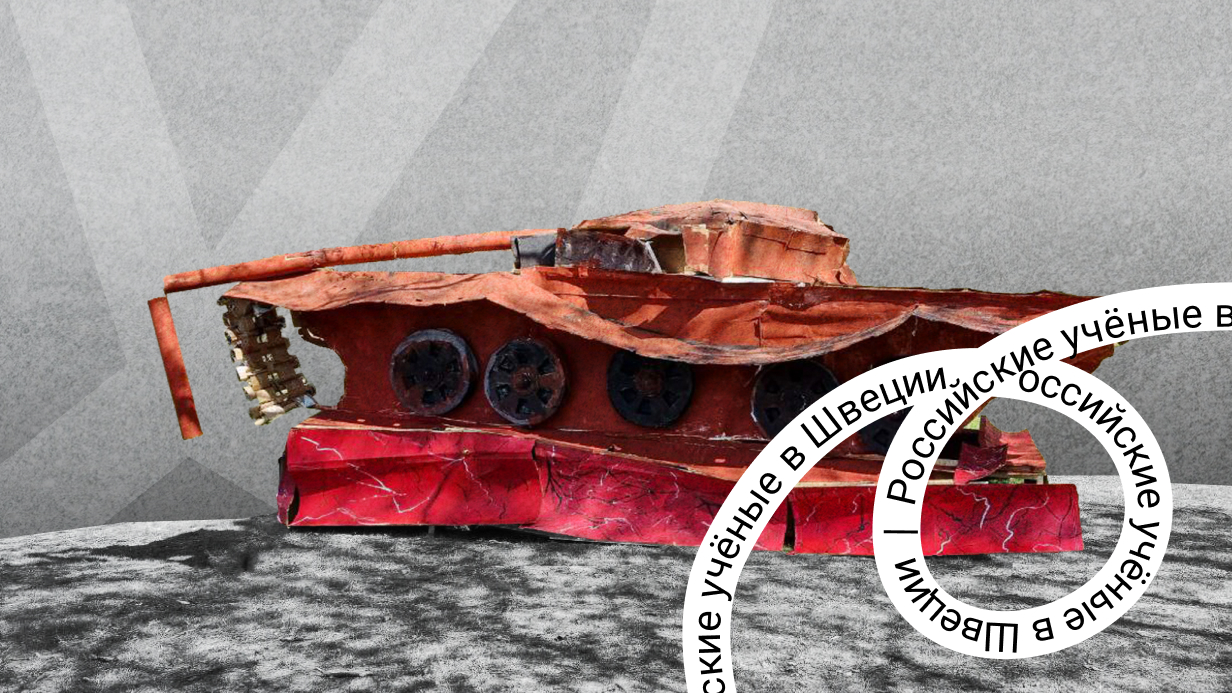
Russian scientists currently in Sweden are increasingly being denied permanent residence permits. And along with the refusal – a ban on entering the Schengen zone for a significant period of time. T-invariant talked to scientists who have been or could be affected by this measure and tried to understand what exactly worries the Swedish Migration Service.
Dangerous Math
Darya Rudneva, a mathematician and political activist, faces deportation from Sweden and a 20-year ban on entering the Schengen zone. Information about this story was widely circulated not only in the Swedish media, but also in the Russian media. And, as is often the case, the story was interpreted in a variety of ways: from infringement of Russian citizens abroad to accusing Daria of espionage. The pro-government media published the news about Rudneva with the following explanations: “The hosts (Scandinavian countries) met the ”fugitives from the regime“ frankly unkindly, surrounded them with suspicions and from time to time ”put on skis”. Periodically, relocants are kicked out of these countries, and their cries of “why?!” hang in the air unanswered.”
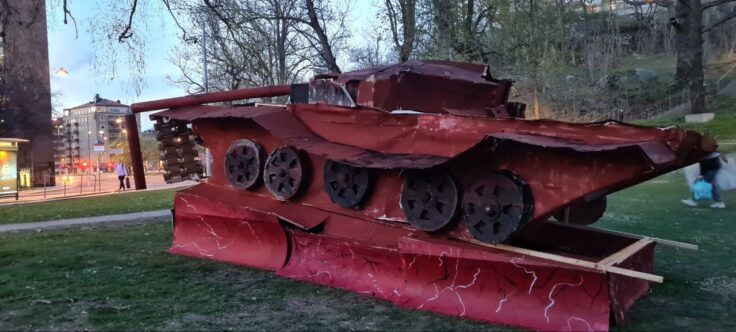
The wide publicity and journalists’ loose interpretation of Daria’s case has frightened other Russian scientists with similar stories. Many of them asked not to be named, fearing similar articles and “heath” from the Russian-speaking community in Sweden.
Daria Rudneva found herself in Sweden in 2021. She graduated from Moscow State University in 2013, then entered the Master’s program at the Higher School of Economics. Then she continued her postgraduate studies at Skoltech (as part of a joint program with HSE). During her postgraduate studies, she received a scholarship to the University of Santa Barbara in California, USA, and in 2016 she went to study there for a PhD.
“That’s where topological quantum computers are done,” Daria says. – It was a unique chance. But in 2018, I came to Moscow on vacation and was diagnosed with cancer. I was treated, went to study in parallel in a joint graduate program in mathematical physics at Skoltech and Higher School of Economics, survived in this mode chemotherapy, surgery, radiation. It was a scary two years. Of course, during that time I literally fell out of life, I certainly didn’t care about politics. But it was during my treatment that I encountered a huge number of different people, their stories, injustice. When I got better, I started spending a lot of time on environmental activism, charity. Not only with some money, but also with personal participation”.
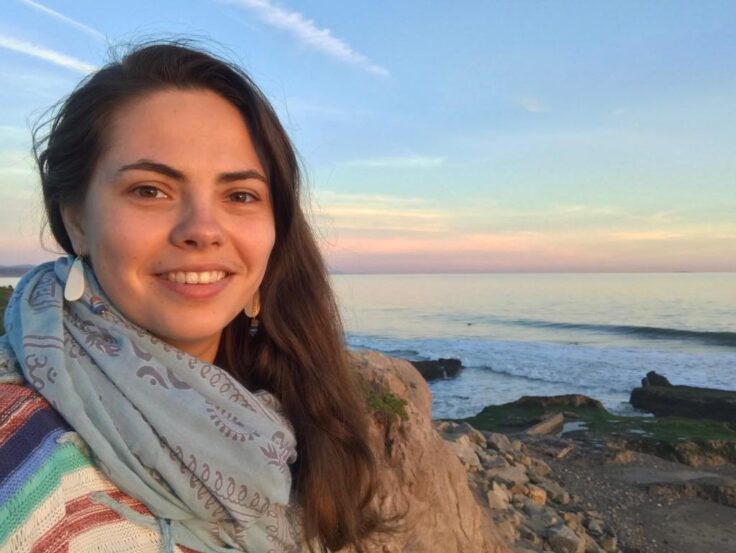
Daria recalls that covid times were not easy for her as a sociable, energetic person, and the offer to study for a semester in Sweden, where there were no covid restrictions, made her very happy. In February 2021, Daria found herself in Sweden, initially thinking it would only be for six months. Twice she successfully extended her student residence permit. In 2022, having received a temporary postgraduate research fellowship from Stockholm University, she applied for another type of residence permit – a visitor-researcher residence permit. But after a long wait, she was rejected and banned from visiting the Schengen zone for 20 years.
Some Russian-speaking residents of Sweden, with whom we spoke, assured us that the ban on entry to the Schengen zone for 20 years – a sure sign of Daria’s involvement in espionage. But Daria’s lawyer Daniel Karnstedt emphasizes that no one has ever accused her of espionage. The main problem is that most of the documents obtained from the security service are classified. Therefore, neither Daria herself nor her lawyers can quote or refer to these documents.
In order to understand the reason for the decision of the Migration Board and SÄPO (the Swedish security service to which the Migration Board refers the case), we have to turn to the investigation of Sveriges radio. Journalists Anja Sahlberg and Daniel Oman did a great job and were able to provide data from these documents, as well as comments from Fredrik Hallström, head of operations at SÄPO. According to them, the reason for the official rejection was Daria’s research topic, which threatened Swedish security.
At the same time, Daria never tires of repeating that her field of research is purely theoretical. Nobel laureate Frank Wilczek, with whom she conducted the research and wrote the paper, and Tors Hans Hansson, another of her notable co-authors, a renowned physicist and member of the Nobel Committee, also say the same. But SÄPO has a different opinion, and as Wilczek admits, SÄPO has not approached him with questions about Daria’s research. Daria recalls that no one asked her questions about the research itself during her interview with SÄPO or the Migration Board.
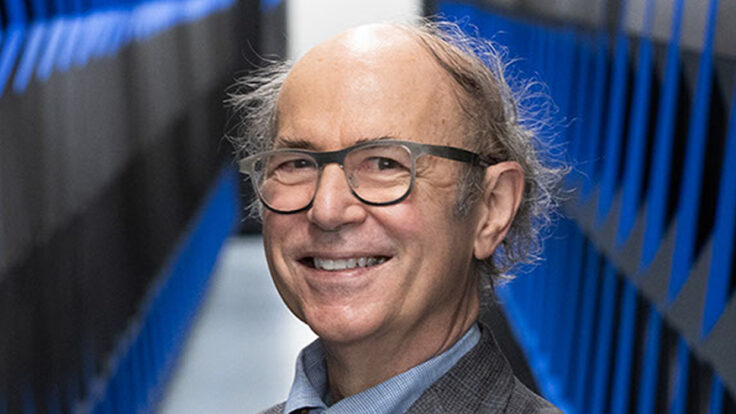
Daria Rudneva is by no means the only example where the Swedish Migration Service has denied Russian researchers a residence permit and issued a lengthy ban on visiting the Schengen area on the recommendation of SÄPO because the research was deemed dangerous to Swedish security.
Beware of the car
Artyom (hereinafter the names of the characters have been changed) thought about moving to Sweden 10 years ago, after graduating from university in Russia. Not at first, but he managed to get a scholarship to Sweden. Artyom successfully completed his master’s degree in this country and worked in technology companies. During the covid he fell under mass layoffs, but managed to find another job and was going to go for a PhD. In 2021, Artyom applied for permanent residence. And in September 2023, in response to his application came the offer to take a lawyer on migration issues. Which, in the experience of other Russians, indicated problems.
“The area in which I was working was recognized as a threat,” says Artyom. – No matter how hard my lawyer and I tried to fight, I was still not able to renew my visa and was expelled from the country. They also gave me a ban (a ban on entering the Schengen zone. – T-invariant) for 10 years.
At the time, Artyom was working in an engineering company related to transportation safety. “I worked on programs for civilian products, for cars. The company used to be Swedish, but then it became part of a large international American electronics and semiconductor company. The company even wrote a letter of support for me, saying that not only did I not have access to data important to Swedish security, but I couldn’t even accidentally access it.”
According to Artyom, neither the Swedish Migration Service nor the court reacted to the letter. At the same time, several people from Iran and China were successfully hired by the same company while Artem was in court, and all of them received visas. Artyom’s lawyer suggested that this was due solely to the political situation: in the past, Chinese and Iranian citizens would have been refused, but now SÄPO has turned its attention to Russians.
Artyom admits that the experience was traumatic for him: “The dreams and PTSD are still catching up with me. Even before I left Sweden, I had to see a psychologist and a psychiatrist for help. My picture of the world, my belief in goodness and justice were severely damaged. I perceived what happened as a betrayal of the system I believed in: I had spent eight years building a life, struggling to make progress, and in the end I was thrown out because of some witch hunt. I consciously chose a country with a serious attitude to human rights, as they like to say in Sweden. My faith in democratic institutions, at least in Sweden, was undermined”.
Artyom is now working in Russia. European countries are closed to him in the coming years. As, most likely, are the UK, the US, Australia, Canada and other countries for which the denial of Schengen visas is important.
“I’m trying to get back to normal life,” Artyom says. – Because of the Swedish Migration Service’s decision, I lost my position as a researcher in the UK: I refused because the visa is expensive and the probability of being refused is too high due to the ban on entry to the Schengen area. I am, of course, used to international companies working at the cutting edge of technology. So later, when I come to my senses, I will be looking at interesting projects in Asia. Well, and I will challenge the decision in international courts, which, I hope, may not recognize the decision of the Swedish Migration Service”.
A blow to the whole family
Ekaterina with her husband and two children found herself in Sweden in 2018: her husband received an invitation to write and defend his PhD in nuclear physics. It is in the field of her husband’s scientific interests that Catherine sees the problems the family is facing today. Two years ago, they began the common procedure for foreigners who have been in Sweden for more than five years to apply for permanent residence. The process was unexpectedly delayed. At the next stage, an employee of the Migration Service advised Catherine and her husband to contact a migration lawyer. With his help, they learned that the case had been referred to the SÄPO. According to Catherine, her husband and their lawyer, the Migration Board suspected that the knowledge and developments from her husband’s work could be transferred to Russia and used against Sweden. That’s when, according to Ekaterina, difficulties in obtaining permanent residency for Iranian, Russian and Chinese citizens began to surface in various groups if the case went through SÄPO.
“At that time, there were no known positive cases for Russians whose case was referred to SÄPO,” Ekaterina notes. – At the same time, we joined a group organized by Daria. At the moment there are 13 people there, there were more, but people left and their cases were closed.
The lawyer advised not to wait for an official decision and to leave Sweden: there was too great a chance of rejection and a ban on entry to the Schengen zone. If you don’t wait for an answer, the case is automatically closed and you can try to find a job in another EU country.
Ekaterina herself is also a PhD student, but in linguistics. The situation with the children was very difficult. Her eldest daughter came to Sweden in the third grade and has been studying in a Swedish school for the last six years. Ekaterina never tires of being happy that in parallel with the Swedish school her daughter studied online in the Russian school. The situation with her youngest son is more complicated. He is disabled, attended a special school in Sweden, constantly undergoes rehabilitation courses and receives medical care. When it became clear that the husband had to return to Russia, at least for a while, the parents decided to leave the younger son with his mother in Sweden and file her documents separately. And the eldest daughter returned with her father to Russia, where she will finish the 10-11th grade in Moscow. The situation for the children is stressful.
“On the advice of lawyers, we attached to my documents a letter of petition to be allowed to stay because of the child’s disability and because it was dangerous to interrupt the treatment. We attached all the necessary documents. Six months have already passed, so far there has been no word,” says Ekaterina.
She also worries that the computer courses on Coursera that she took while covid on the Internet could be critical for her: “To be honest, I realized that programming was not my thing. But now it turns out that these courses are enough for SÄPO to consider my activities as a potential threat to Swedish security. I won’t be able to write any programs, but that doesn’t matter. Nevertheless, I have taken the risk of staying in Sweden. I’m in the process of collecting data for my PhD, with a little more to go. And if things don’t progress with the Migration Board, I’ll probably leave too. It is very hard to live in limbo.
It is interesting that Ekaterina graduated from a military university, studied at the paid department (that is why, according to her, she does not have any military ranks and has never worked in military institutions) in linguistics. It would seem that this is what should alert SÄPO.
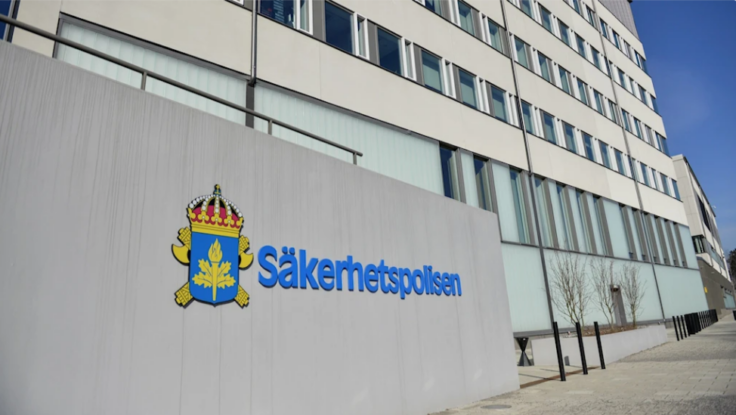
“About the fact that I graduated from this university, never hid, provided data for admission to the master’s program, – explains Ekaterina. – And most importantly, I saw the journal of my case. And it says that SÄPO has no claims against me on this point”.
In Ekaterina’s opinion, all Russian scientists who apply for permanent residence and have technical specialties should be worried now. Among her friends who have encountered such problems are biologists, chemists, physicists, mathematicians, and IT-scholars. Humanities majors, on the other hand, go smoothly.
Spy movie
Our next interviewee’s problems began in March 2024. He submitted his documents for another visa in November 2023. Vitaly successfully defended his thesis, received a job offer as an engineer in a laboratory and decided to submit his documents to the Migration Service for permanent residence with a new contract. “In Sweden it is very difficult to get information about the status of a case,” he says. – The only answer is: wait, wait, wait. I tried to call, but no information could not be obtained. And on the next letter I got the answer that I need a migration lawyer to get access to secret documents. I did not have a lawyer of my own, so I asked him to appoint one for me.
The appointed lawyer did provide access to the secret SÄPO decision.
“It looked like in some spy movies,” Vitaly recalls. – We sat down in the room, closed all the blinds and only then took out the document. It was not allowed to disclose it before the court ruling. Now I think we can. SÄPO recognized my field of research as dangerous to Swedish interests. And they don’t recommend granting a residence permit”.
The lawyer immediately warned Vitaly that this recommendation has great force, and the Migration Service is unlikely to go against such a recommendation. “I had a shock at first, I did not understand what was happening,” says Vitaly. – First of all, my research is public. Secondly, in the company where I work, everyone knows very well that I am Russian, I have never hidden it. And I work in a field related to civil aviation, in the field of aerodynamics. My research can in no way be called dangerous, it’s fundamental science.”
In the decision, which Vitaly received in October, he was denied permanent residence permit, and also stated that he could not apply for any other type of residence either by work or study. Plus a ban on visiting Schengen countries for five years.
Vitaly admits that at first he did not believe in such a decision, hoping that it was a mistake, which the services would surely sort out quickly: “My first thought was: if I have done nothing wrong and the country treats me this way, why should I stay here? This is a real act of discrimination based on nationality. Then there was another question: if my field is dangerous, why shouldn’t I be allowed to do something else – I can change my activity. And what does a five-year ban have to do with it?”.
The lawyer advised Vitaly to calmly file an appeal, move on and wait. With the appeal, Vitaly filed a request for a court hearing. In December 2024, the hearing was denied. In February 2025, it became known that Vitaly’s case should be reviewed again by the Swedish Migration Board at the conclusion of the court. So far, Vitaly treats this news cautiously: “In the letter from the Migration Board that came later, there were references to refugee status, and I don’t like that very much. It’s certainly better than deportation in a short time, but I didn’t apply for refugee status. I want to legally be allowed to stay and work in the country, given that I meet all the necessary conditions. I know many cases like mine: the case is reconsidered, but the decision is the same. It can take years: courts, appeal, courts, appeal.
Don’t wake the bear
Tatyana does not work in academia now, although she has been involved in scientific research for many years in both Russia and Sweden. And her husband continues his career in science. Both are involved in theoretical mathematics. Tatiana has had Swedish citizenship for a long time. He successfully completed his doctoral studies at the Swedish University. And after five years of living in Sweden, having received a new long contract for postdoctoral studies, he applied for permanent residence. Tatiana says that her husband regularly needed to travel to conferences because of his work, but this became impossible when he was waiting for a decision on permanent residence without documents. As is customary in Sweden, after six months of waiting, the couple filed a petition for expedited processing. In response came the question about all publications and contacts with Russian scientists. The expedited case was denied.
“We knew that the Russians were being checked by the intelligence services, and we didn’t mind, we have nothing to hide,” says Tatiana. – We offered to help them get the necessary certificates: to ask friends to get on the spot. But they told us to just wait. It was then that we found information on social networks that researchers from exact sciences are being specially checked and there could be problems.
Then Tatyana and her husband directly asked the inspector assigned to them at the Migration Service whether their case was pending at the SÄPO. It turned out to be there. After a few more months of waiting, the couple decided to contact a lawyer. Tatiana immediately warned the secretary that the case might not be easy. But as a result, she ended up with a junior lawyer, whose competence she now assesses not very highly: “Our conversation lasted an hour. And for the whole hour she convinced me that everything was fine and there could be no problem because of the Russian passport, that we were not doing anything secret, so they could not deport us. But she promised me that she would consult with her colleagues.
Nevertheless, colleagues confirmed Tatiana’s position: there is something to worry about. “According to my colleagues, there is indeed a risk that in your case SÄPO will object to the residence permit,” was written in the lawyer’s letter received a few days later. – Even if your husband does not work in a field that is considered sensitive, it is enough for SÄPO that he works at the university and can access information and materials from other studies on campus.”
The same letter stated that if SÄPO opposed the decision, the Migration Service would not go against it. They do not conduct their own investigations. Moreover, they will not grant a residence permit on other grounds. SÄPO can unreasonably issue such harsh decisions to people coming from certain countries. The letter also gave advice: if the Migration Board recommends hiring a lawyer and it becomes known that SÄPO has issued a negative decision, you should leave the country immediately without waiting for the official decision of the Migration Board. Otherwise you can get a ban for several years for the whole Schengen area.
Tatiana and her husband were ready to write letters to their employers that they were important employees and it was important that unnecessary thoughts and nervousness would not distract them from their work. But the lawyer advised “not to wake the bear”. The same advice was given to Tatyana by other law firms.
As a result, Tatiana’s husband successfully obtained a permanent residence permit and continued his scientific work. What exactly helped them, they do not know exactly. Perhaps SÄPO decided that the area of research was really completely harmless. Or the fact that they had not visited Russia for the last five years and cooperation with Russian colleagues had been terminated played a role. Or the fact that Tatiana already has Swedish citizenship.
The game “Find the Spy”
We asked Dmitry Dubrovsky, a historian, sociologist, and lecturer in the Russian Studies Master’s program at Charles University, who is currently studying the current migration of scientists and teachers to Europe, to comment on the situation with Russian scientists in Sweden.
“The Swedish security service went a little bit crazy after joining NATO,” he describes the situation in Sweden. – You can understand them, they have a lot of work to do, and that’s objective. It seems that no security service in the world can boast of a complete absence of errors in its work. But Sweden greatly abuses excessive attention to security clearance (access to secret data), for example, with regard to Russian and Belarusian scientists. There is a real example from practice: a person is engaged in bioinformatics, he applies for a position in Sweden, wins, applies for a visa, and the Migration Service transfers the case to the security service simply because he is a biologist. As a result, it takes a year to process the case! Naturally, the company withdraws its decision – they are not prepared to wait for the right specialist for such a long time.
Dubrovsky also draws attention to the fact that the conclusions of the Migration Service are actually based on a document, the content of which is completely unknown to anyone: neither the lawyer, nor the migrant, nor the court, nor even the Service itself. It was only thanks to the work of Artyom’s lawyers that it became known that such a document existed at all, but it was not available to anyone. The only thing that is available to everyone is the information that SÄPO considers the specialization of a particular scientist dangerous for Sweden, and the proof of this is in the very “top-secret document”.
“It turns out that the decision is made on the basis of a document not just secret, but secret for the legal system as well,” explains Dubrovsky. – As a result, we not only don’t know the basis for all the far-reaching conclusions, but – as a consequence – we can’t challenge it. Show an independent court that you have at least some basis for making such a decision! Otherwise, it turns out that the decision made both in the courts and in the Migration Service is influenced by a document that none of them has seen. Do they not want to show the document or can’t they?”
We asked Dmitry Dubrovsky, who researches the situation with migrant scientists in different countries, whether he observes similar difficulties with obtaining residence permits in other European countries.
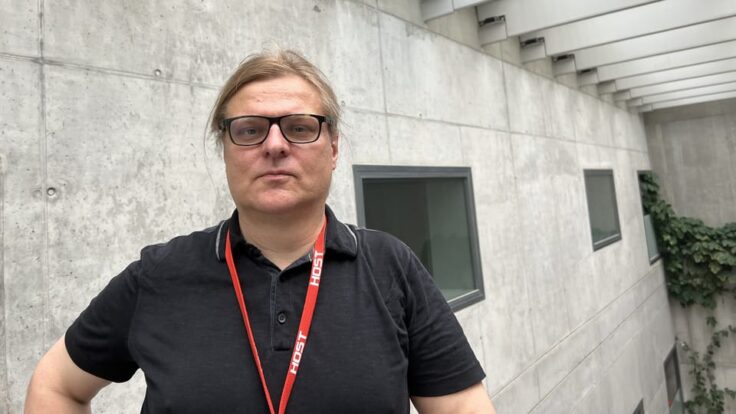
“In the Czech Republic, Russian citizens are not given visas almost at all. Thanks to a special system of exemptions, the Civil Society program was created, under which about 170 visas were granted in 2022: it turned out that few people are willing to go through a complicated and long procedure with a large number of conditions and restrictions. In particular, you need to be known in the Czech Republic, and the organizations that act as guarantors for your visa need to officially confirm that you are indeed persecuted in Russia,” says Dmitry. – Those who are not persecuted in Russia cannot get visas. In particular, the current Czech government does not even want to issue visas to our students of the Nemtsov academic program for Russian studies“.
Dubrovsky admits that the problem looks different depending on which side you look at it from. Of course, those trying to obtain a residence permit are perplexed if the Migration Service, when reviewing a case for a threat against an applicant, notes that the person applying in Russia has “too few anti-war posts on social networks. For the Migration Service, it’s easier if you’ve already been arrested, or better yet, imprisoned. “It would be easier for those who have been shot to get refugee status,” Dubrovsky ironizes. The Migration Service knows nothing about the Russians who have arrived, and it is easier to refuse them than to delve into the nuances. On the other hand, Dmitry reminds that after the case of Professor Morozov, the wariness in Estonia is understandable. In the current situation, European countries are indeed constantly confronted with espionage in favor of Russia. Another thing is that most of the spies are not engaged in scientific activities. “It is too long, labor-intensive and ambiguous way,” explains Dubrovsky. – Getting a visa can be much easier than scientists do. The same Malta golden passports, business visas, or visas for journalists.”
Dmitry reminds us that the game “Find the Spy” is played with pleasure not only by the security services, but also by migrants from Russia themselves: “It is an endless history of searching, so to speak, to find out which of those around you might be an agent of the NKVD, then the KGB, and now the FSB. Such a long sad tradition, not only Russian, I think, but Russian inclusive. It’s a toxic thing that messes up relationships a lot. That’s not to say there aren’t agents, but you still have to be careful. I’d say the potential benefits of detecting a spy are much lower than the total suspicion that severely hinders everyone from doing anything. Not to mention the fact that he has nothing much to do in the scientific environment: we are not politicians, not activists, our job is research and education, which, of course, the Russian security services are simply not interested in.”
“Their own fault”
T-invariant wrote letters to SÄPO and the Swedish Migration Service with a list of questions, and received official replies. SÄPO spokesman Gabriel Wernstedt sent the same answer to all clarifying questions: “The Swedish Security Service is in constant consultation with the Swedish Migration Board. Our mission is to examine authorizations related to potential security threats. However, SÄPO is not responsible for decisions regarding permits; this is the responsibility of the Swedish Migration Board”.
The Migration Board could not provide any data on Russian citizens, and even less on scientists from Russia, because of data confidentiality. But if we look at publicly available reports, we can see that the number of cases sent by the Migration Service to SÄPO is growing every year. In 2022 there were 296, in 2023 there were 424, and in 2024 there are already 593.
Russians are not the first foreigners who have suffered in Sweden from the work of SÄPO. There is even a petition, signed in April 2024 by 25 leading Swedish lawyers, in defense of the Kurds. “In recent years the Security Service has started to criminalize the Kurds and we believe that SÄPO’s work has gotten out of control. The political stance and activities of the Kurds, for which these same Kurds were initially granted protection in their new homeland, have for several years been classified by SÄPO as ‘terrorism’, an assessment that has subsequently been upheld by decision-making bodies <…> “The political persecution of Kurds, Kurdish institutions and associations must stop. The broad definition of terrorism adopted by the SÄPO as a result of the exchange of information with the Turkish security service should be strongly criticized. Turkey was a country that had been found guilty of violating the Convention several times by the European Court of Human Rights. It is also a country where thousands of lawyers, journalists and politicians are imprisoned on arbitrary grounds,” the petition said.
T-invariant asked the interlocutors why, in their opinion, it is easy to find stories about the affected Kurds, Iranians, and Chinese in the Swedish media, but the only case of publications about the problems of Russians is related only to Daria Rudneva. Many believe that Russians’ problems are relatively recent, and the media simply haven’t had time to react yet. “Russians haven’t had to deal with this very recently. It’s clearly a reaction to the war between Russia and Ukraine,” argues Mikhail, who has been waiting for a decision on his residence permit for almost a year. – After the war started, it took some time for the bureaucratic machine to work. By 2023, the mechanism was set in motion and strange refusals to grant Russian researchers residence permits began to appear on a regular basis. My colleague (also from Russia and in the same graduate school as me) submitted her documents literally six months earlier, and she was done in a month”.
Another version: the scientific community is very closed. Scientists don’t like to “make a big deal out of it” and even less like to talk to journalists, especially on topics not directly related to their research.
But the most popular answer was the following: Russians themselves prefer not to publicize problems with the state. In the opinion of a significant part of our interlocutors, people tend to blame the affected Russian, hoping that it is not an institutional problem, but a problem in a particular person: he/she went to the wrong place, studied at the wrong school, participated in the wrong activities, etc. Almost all our interlocutors found an example of a person who at first wrote that everything was right, that SÄPO should check and expel dubious people, and then disappeared from the group: it turned out that under the threat of a ban he had urgently left Sweden.
“You see, people are wildly stressed at this time. A lot of people just don’t have the energy for any kind of publicity. Even after the verdict, many people are afraid to speak to journalists under their own name: if silence helps them stay in Sweden, and if they have to return to Russia, if such publicity comes back to bite them,” says Daria Rudneva.
“People often just don’t know how to react, what can be done,” says Vitaly. – Many people are afraid to turn to the media. Information is spread chaotically, words are distorted, twisted, taken out of context. As a result, you could be kicked out of Sweden, and it would be dangerous to return to Russia after such a ruckus. It turns out that you may turn out to be a traitor in one country and unnecessary in another”.
I think Russians hide their problems because their compatriots immediately start shaming, suspecting and accusing them,” says another of our interlocutors, whose husband works in optical research and has also received a negative decision from SÄPO. – If you are in trouble, it means that the case is unclean, you are spies. It’s embarrassing and scary to go somewhere else. I don’t know what we would have done if we hadn’t gotten into Daria’s group.”
Just before the release of this material, it became known that a group of victims of inadequate measures of the Swedish Migration Service is trying to file collective applications in international courts. “The biggest difficulty is that the Swedish process is very slow, and so we are all at different stages,” says Daria. – Moreover, some of us have already left Sweden and therefore cannot get a number of documents needed to file in the international courts.”
Today, the group is looking for other victims so that the international courts can understand the scale of the problem. This is complicated by the fact that many have been refused residence permits outside the EU and have simply not gone to Sweden. Most of them have already successfully obtained positions in other countries and have forgotten about Sweden like a bad dream. In addition, the group is in constant contact with the UN special representative, who is trying to help Russians caught in the current situation. But it is still a mystery why Sweden is getting rid of talented scientists who work in obviously unclassified fields and could bring a lot of benefits to the country.